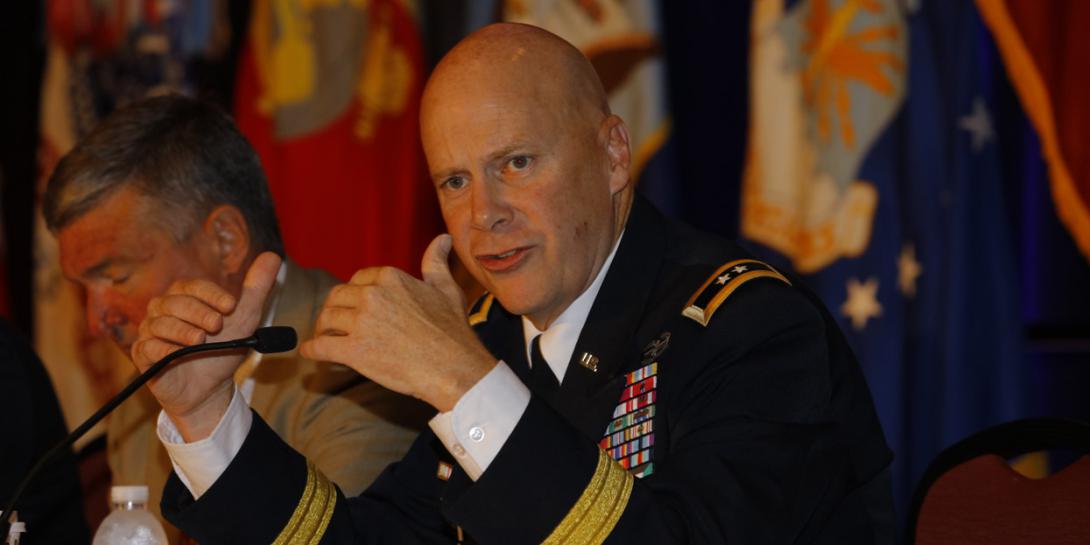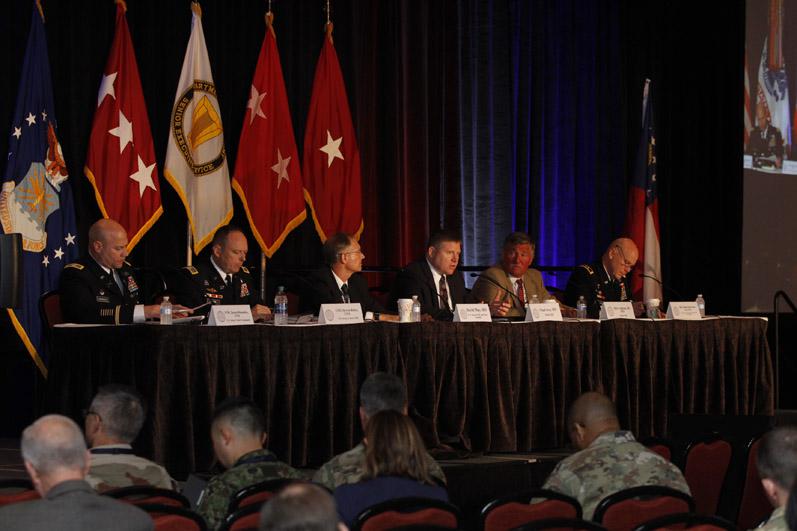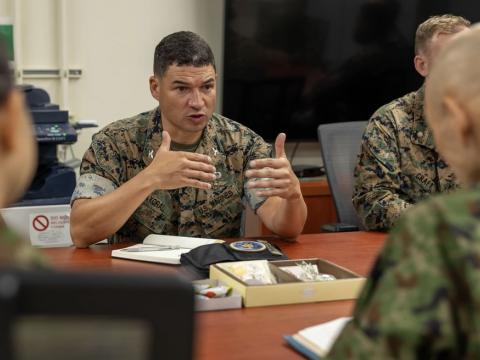Army Modernizing Training and Education for Cyber, EW
The U.S. Army is making multiple changes to the way it educates soldiers fighting in the cyber and electronic warfare domains. Rather than training soldiers on step-by-step processes, the service is educating personnel to come up with their own solutions on a technologically complex battlefield.
Army Maj. Gen. John Morrison Jr., who commands the Army Cyber Center of Excellence, said the school is taking a fundamentally different approach. “Inside the school house, we’re moving away from training because training is what units do, and we’re moving toward education,” the commander said while moderating a panel at the AFCEA TechNet Augusta conference in Augusta, Georgia.
He explained that the school has adopted an “outcomes-based” approach rather than a “task-based” approach. The latter might train a soldier, for example, to turn on a system’s power switch. That causes a green light to come on, which prompts another step, or task, and then another.
“In a networked world, and in a cyber domain that’s ever-changing, I would submit to you that if we try to do task-based training, we are not going to get where we need to be,” Gen. Morrison asserted. “Outcome-based means I’m just going to tell you what I want you to get done. How you get there is up to you. Get there. Get there quickly. Think through the problem.”
MG John B. Morrison, Jr., USA, Commanding General, @ArmyCyberCoE:
— George Seffers (@gseffers) August 23, 2018
says the schools are moving away from training, which is what units do, to educating. He stresses outcomes-based education that teaches soldiers to think through a problem. Some in audience applaud.#AFCEATechNet
He admitted the new approach is creating some friction, but he also said it allows more flexibility and innovation. “You get troops who can think their way through problems, and as a new technology or capability comes along, they’re able to employ it much faster,” he said. He added that soldiers trained to perform specific tasks are not really thinking through the problem. “They’re just doing what they’re told. Those are not the operators we need in the cyber domain.”
Gen. Morrison suggested the outcome-based approach could be implemented at other schools as well. “That applies to signal, cyber, electronic warfare, signals intelligence and anything that is going to be operated in this very complex domain,” he stated. He added that the school for electronic warfare is moving in that direction and that the signal school is essentially considering the same thing as part of “foundational training” concept.
"In the cyber school that’s the model that we’ve implemented. That’s where we’re moving toward with our EW components, and when you hear the phrase ‘training could be implemented inside the signal school,' that’s exactly what it is—outcomes based," the general said.
The Army also is making its electronic warfare more technically comprehensive. The electronic warfare school is bringing in soldiers straight from basic training for advanced individual training rather than admitting only officers and non-commissioned officers. Additionally, the service plans to begin teaching electronic warfare courses at Fort Gordon, Georgia. Most are currently conducted at Fort Sill, Oklahoma.
Furthermore, cyber training teams are teaching cyber skills to electronic warfare warriors, providing them a more well-rounded skill set as they prepare to transition to the cyber military occupational skill.
David May, senior intelligence advisor at the Army Cyber Center of Excellence, also served as a panelist at the conference. He noted that the Army is school is co-located with operational forces. “One of the great benefits about Fort Gordon is we have the convergence of the institutional and the operational force. We can take service members directly off of an operational assignment and bring them into the classroom so that the courses and the information stay relevant to the task at hand,” May said.






Comment
Not very optimistic that the
Not very optimistic that the Army gets it.
We are competing with the commercial world . As we train our outstanding soldiers to be cyber warriors they are separating at their ETS because the commercial world wants their skills at a much higher salary level.
Comments